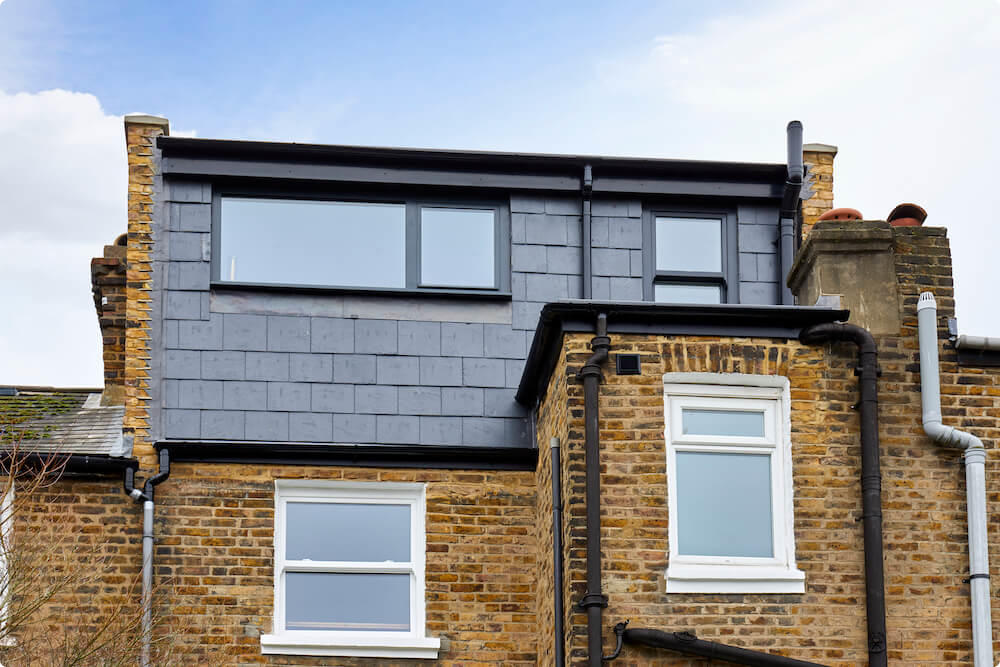Do you have a loft space that exists purely to store your Christmas decorations or an old hamster cage? Often the space at the top of the house is left unloved and doesn’t tend to reach its potential as a room and value increasing addition to a home.
Perhaps you work from home and treating the dining table as your work desk just doesn’t seem right? That wasted loft space could provide the perfect home office you’ve been craving.
In this article, we’ll explore the benefits of a loft conversion, as well as cost-effective ways to renovate your loft into a useful and functional space.
What benefits can a loft conversion provide?
Increase the size of your home
Space isn’t always a luxury that you’re afforded when you live in North London; however, if you’re lucky enough to have more than one storey at your disposal, there’s a good chance you have a loft.
Converting this space can provide a family home with so much - whether that be new office space to help separate working life from your home life, to a tranquil space for yoga or exercise, to an extra bedroom for a growing family or visiting friends.
Add value to your home
Loft conversions are also a great way to add value to your home. Converting your loft into a bedroom or en-suite bathroom can add as much as 21% to the value of your home, according to research by Nationwide - a considerable return on investment if you do consider moving in the future.
Save yourself the hassle of moving
Thanks to recent increases in interest rates, the cost of mortgage borrowing is soaring. Coupled with estate agency fees and stamp duty, the cost of moving can be very expensive. In addition, uprooting a family can cause a tremendous amount of stress as well as the time it takes to resettle elsewhere. Adding a loft conversion to your existing property is a great way to avoid these difficulties.
Improve your home’s energy efficiency
As loft conversions require adherence to building regulations, energy efficiency should be factored in to ensure approval. As such, a loft conversion can improve the energy efficiency of your house. From the insulation used to the windows selected to the type of light bulbs installed, there is plenty of room to save energy and money.
North London: an ideal spot for a loft conversion
North London is home to just shy of one million people and is comprised of seven boroughs: Barnet, Camden, Enfield, Hackney, Haringey, Islington and Westminster.
Boasting a great variety of both historical and cultural landmarks (such as Hampstead Heath, Parliament Hill and the British Library), this area is hugely multicultural and is often considered to be an upmarket part of London.
With its fantastic transport links, North London has an average house price of over £800,000, which makes it an ideal location to continue to invest in property - and what better way than converting your loft to increase the value of your home further?
What kind of loft conversion can you typically have in North London?

Although every project will have to be assessed in accordance with planning legislation (see below), we usually see two main types of loft conversion in North London:
Dormer loft conversion
A dormer loft conversion is essentially a box-shaped extension to the front or rear roof of a property. This type of structure really does create a significant amount of space by introducing new vertical walls and a flat roof, which also increases headroom in your loft. Based on previous experience in the Haringey borough, for example, we’d typically opt to build dormer loft extensions set down from the ridgeline and up from the eaves by at least 0.5 metres.
Roof window or Velux loft conversion
One of the simplest ways to convert a loft is through the installation of Velux or roof windows. This provides an abundance of light for your new loft space. As Velux windows are installed directly into the existing roof structure, there is no need for any roof restructuring, which ultimately results in a much cheaper loft conversion than a dormer, for example.
























